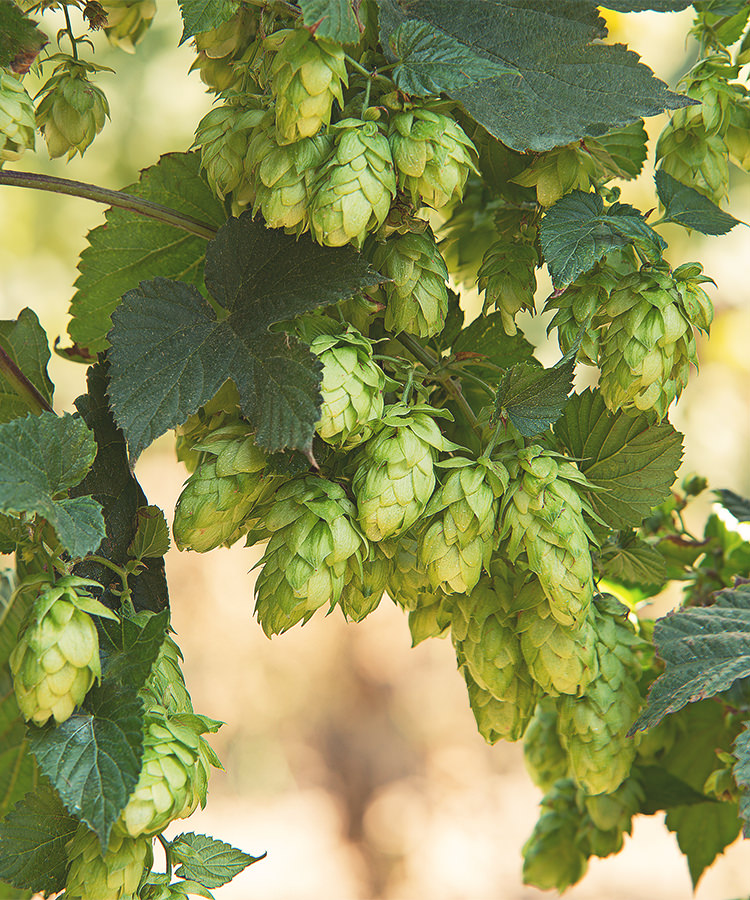You don’t need to look into history books for what happens when a monopoly controls production, distribution, and the raw materials of a market. It’s happening right now in the world of craft beer.
AB InBev, the largest beer company in the world, is keeping American craft brewers from purchasing coveted South African hops. The company has owned the farm since it merged with SABMiller in 2016. Instead of the hops going to independent brewers who previously purchased the hops, nearly the entire yield is going to AB InBev owned companies.
The craft beer community, still preoccupied with the news that AB InBev bought previously beloved brewery Wicked Weed, rose up in a near universal uproar. AB InBev, however, released a statement that the decision was based on a shortage of hops, not as an effort to, as MarketWatch puts it, shut out craft beer brewers “by hoarding hops.”
“South Africa is not a traditional hop growing region,” Willy Buholzer, AB InBev’s global hops procurement director, said via a statement obtained by Brewbound. “SAB’s R&D efforts made it possible to grow hops in South Africa but it is still less than 1% of the world hop acreage and production. This year, South Africa suffered from low yields. Previously, SAB has sold a small surplus of locally-grown hops to the market. Unfortunately this year we do not have enough to do so given the poor yield.”
The company will, however, still sell hops to South African craft brewers, according to the statement.
How can AB InBev harm small breweries? Well by buying the entire South Africa hop crop for it ‘s own use for one https://t.co/kokNzDtM9a
— Two Towers Brewery (@TwoTowersAle) May 11, 2017
The hop farms were a major thorn in the side of AB InBev as they attempted to work out a deal to merge with SABMiller. South African trade unions opposed the merger, the Wall Street Journal reports, and there was a question of whether South African regulators would let the merger go through. In the end, AB InBev won out, and the craft beer community’s fear about a monopoly intensified.
For some, those fears are manifested in AB InBev’s decision not to sell hops from one of the hottest new growing regions.
“Along with the news late last week of ABI buying Wicked Weed, I was informed by SAB Hop Farms (part of ABI’s purchase of SAB-Miller) that ABI are commandeering all the hops that were to be allocated for distribution to North American craft brewers,” Proclamation Ale Company wrote on Facebook. “The goal is to sell the hops internally to their acquired (former) craft breweries, even though they have not been able to sell all the hops as of yet. Regardless, they refuse to let US craft brewers buy any CY 2017 hops believing this will afford them a competitive advantage in an increasingly competitive marketplace.”
Cellarmaker Brewing Co. called for consumers to reconsider buying AB InBev products, tweeting that “AB InBev’s fake craft brands fuels this fire.”
The amount of South African hops being held by AB InBev is relatively small. The slight against brewers, however, didn’t feel small. Especially after the Wicked Weed purchase and new allegations that AB InBev-owned distributors in Massachusetts are illegally influencing competition.
The South African hops that will make it into the U.S. will go to AB InBev owned breweries: Goose Island, Blue Point, 10 Barrel Brewing Co., Elysian, Golden Road, Four Peaks, Breckenridge Brewery, Devil’s Backbone, Karbach Brewing, and Wicked Weed.
VinePair reached out to AB InBev for comment, and will update accordingly.
